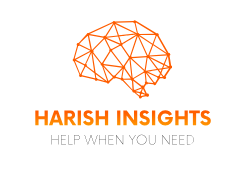In today’s fast-paced world, technical skills and knowledge alone are no longer sufficient for achieving success. Emotional intelligence (EI) has emerged as a crucial factor that influences our ability to navigate both personal and professional landscapes. Understanding and harnessing the power of emotional intelligence can unlock doors to growth, resilience, and meaningful relationships.
What is Emotional Intelligence?
Emotional intelligence refers to the ability to recognize, understand, and manage our own emotions while also recognizing and influencing the emotions of others. It encompasses four key components:
1. Self-awareness: Recognizing your own emotions and their impact.
2. Self-regulation: Managing your emotions in healthy ways.
3. Social awareness: Understanding the emotions and needs of others.
4. Relationship management: Building and maintaining healthy relationships.
The Importance of Emotional Intelligence in Personal Growth
Emotional intelligence plays a pivotal role in personal development. Here’s how:
1. Enhanced Self-Awareness
Self-awareness is the foundation of emotional intelligence. By understanding your emotions, you can identify patterns in your behavior, leading to better decision-making. For example, recognizing when you are stressed can prompt you to take a break or seek support, ultimately improving your mental health.
2. Improved Stress Management
Emotional intelligence equips you with tools to cope with stress. By managing your emotions effectively, you can respond to challenges more calmly and constructively, reducing anxiety and preventing burnout.
3. Greater Empathy and Connection
Being emotionally intelligent allows you to empathize with others, fostering deeper connections. This ability to understand different perspectives enriches personal relationships, enabling you to communicate more effectively and build trust.
The Role of Emotional Intelligence in Professional Growth
In the workplace, emotional intelligence is often a better predictor of success than traditional intelligence. Here’s why it matters:
1. Effective Leadership
Leaders with high emotional intelligence inspire and motivate their teams. They can gauge the emotional climate of their workplace and respond to their team’s needs, creating an environment where everyone feels valued and heard.
2. Enhanced Collaboration
Emotional intelligence fosters collaboration. By understanding the emotions of your colleagues, you can navigate conflicts more effectively and facilitate teamwork. This leads to higher productivity and a more cohesive work environment.
3. Better Communication Skills
Strong emotional intelligence enhances your ability to communicate clearly and compassionately. This is essential for delivering feedback, resolving conflicts, and engaging in meaningful conversations, all of which contribute to a positive workplace culture.
How to Develop Emotional Intelligence
Developing emotional intelligence is a lifelong journey. Here are some strategies to enhance your EI:
1. Practice Mindfulness
Mindfulness practices, such as meditation and deep breathing, can help you become more aware of your emotions and improve self-regulation.
2. Seek Feedback
Encouraging feedback from others can provide insights into your emotional responses and behaviors, helping you identify areas for improvement.
3. Engage in Active Listening
Practice active listening by fully focusing on the speaker, understanding their message, and responding thoughtfully. This builds empathy and strengthens relationships.
4. Reflect on Your Emotions
Take time to reflect on your emotional experiences. Journaling can be a helpful tool to explore your feelings and responses in various situations.
Conclusion
Emotional intelligence is a powerful asset that can transform both personal and professional growth. By cultivating self-awareness, improving your ability to manage emotions, and fostering strong relationships, you can unlock your potential for success. In a world where connections matter more than ever, investing in emotional intelligence is not just beneficial; it’s essential. Embrace the journey of developing your EI, and watch as new opportunities for growth and fulfillment unfold before you.




